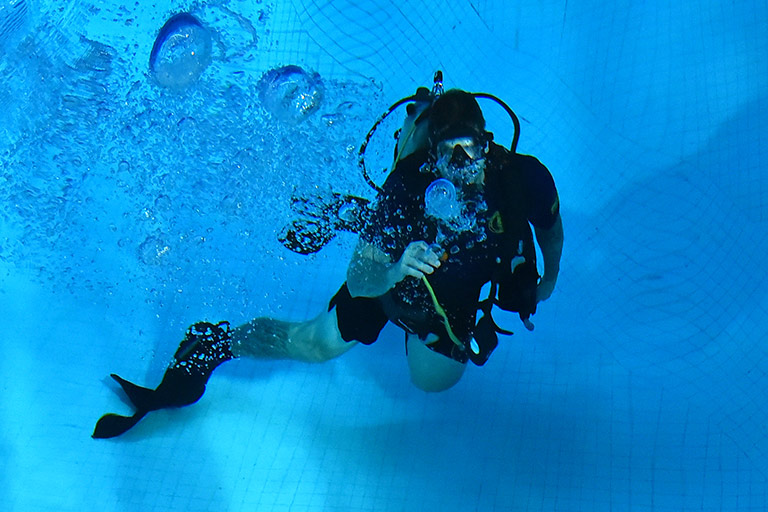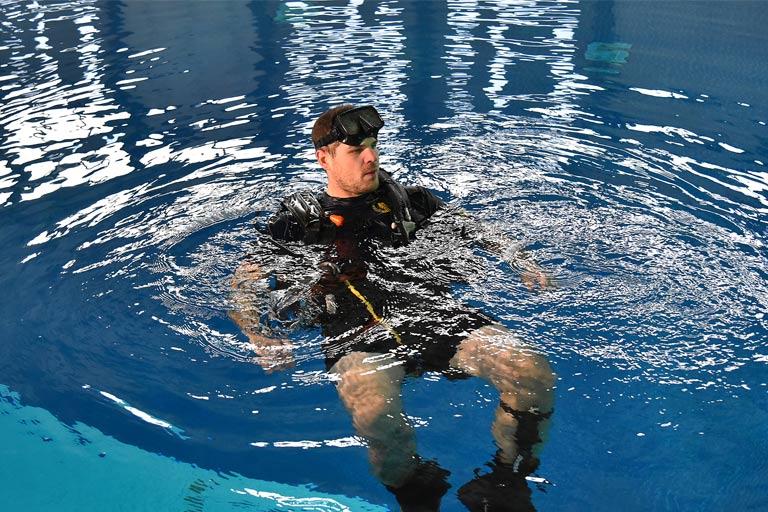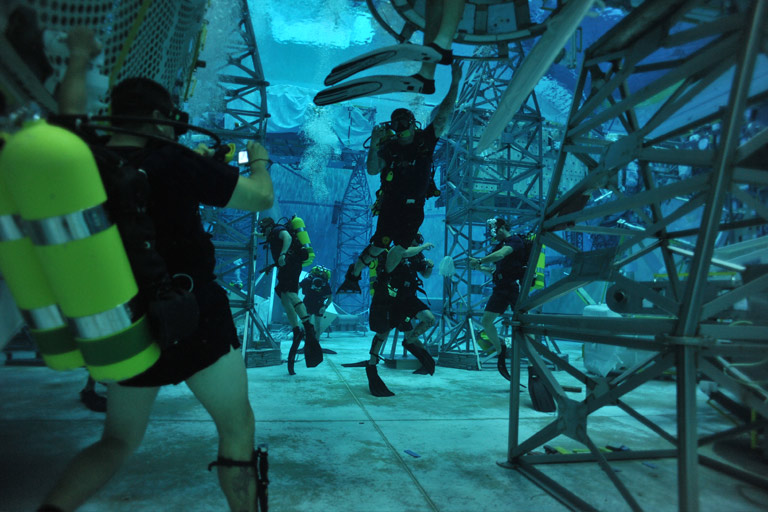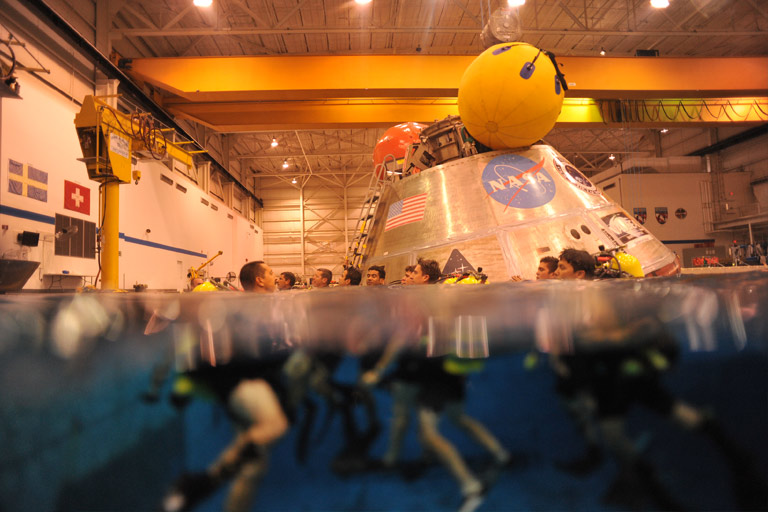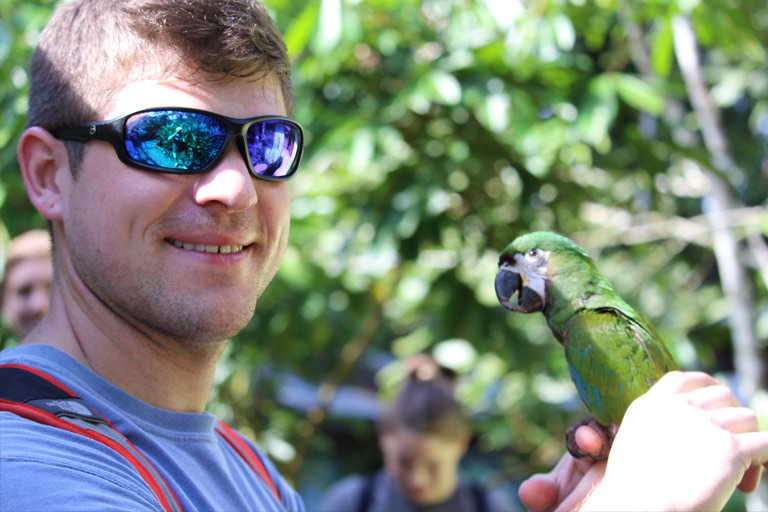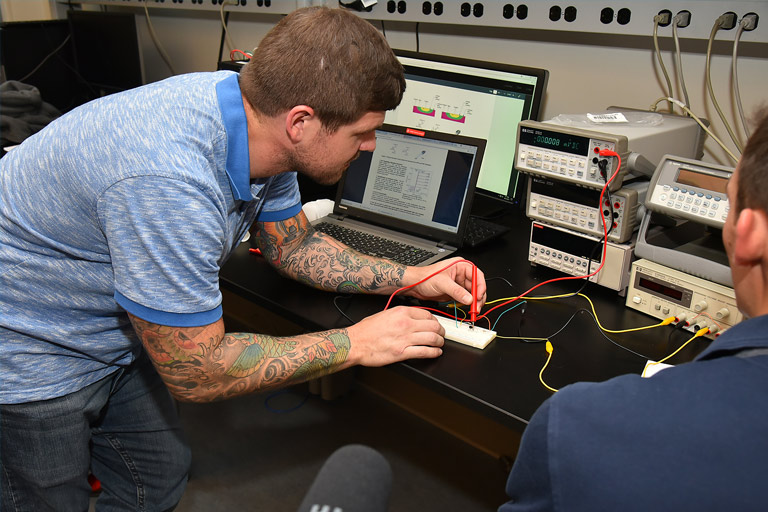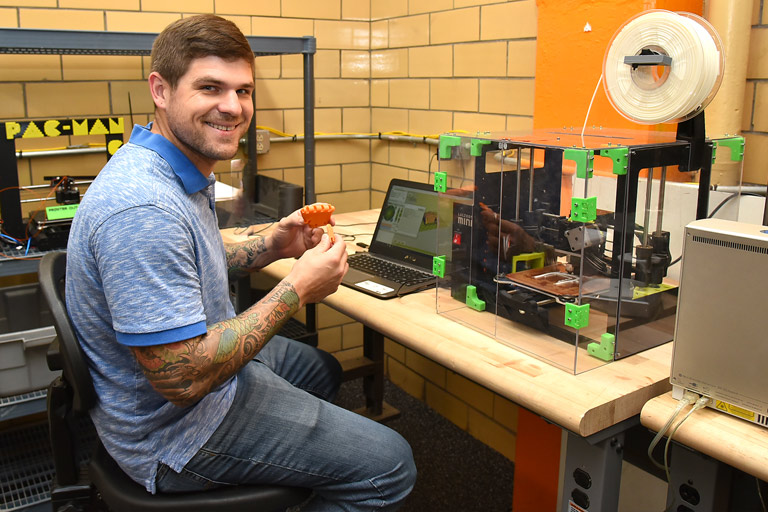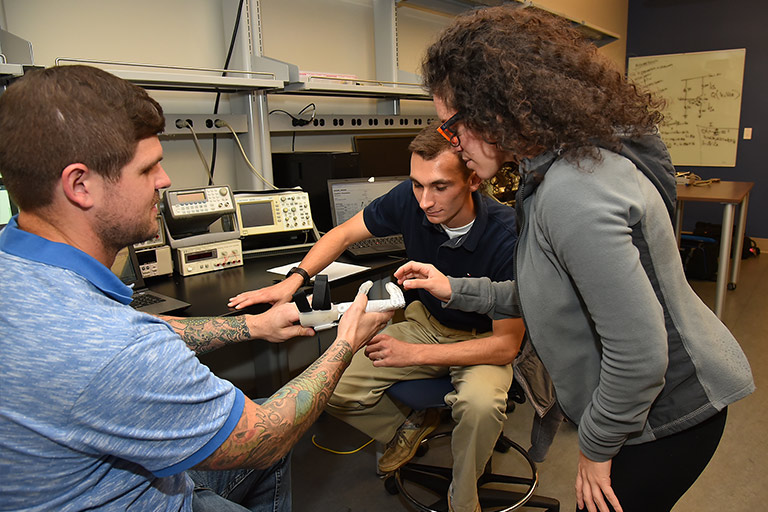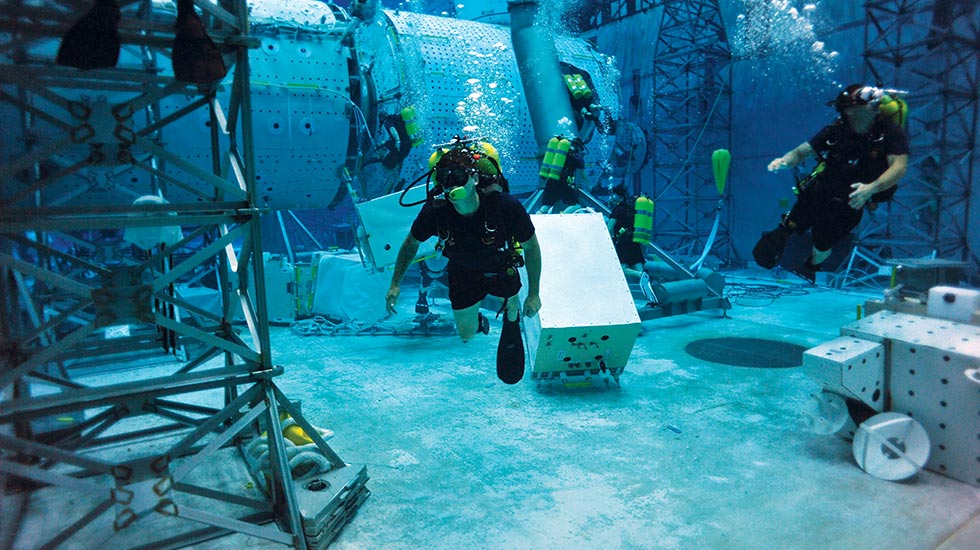A Life of Service
Like other new recruits to the United States Navy, Alex Weber pledged its motto “Not for self but for country” when he joined its ranks a dozen years ago.
That mindset of putting others first was a driving force in his time as a Navy diver, highlighted by his participation in recovery efforts following the devastating Japanese tsunami in 2011 as well as with missions to recover and identify remains of US soldiers killed in the Vietnam War.
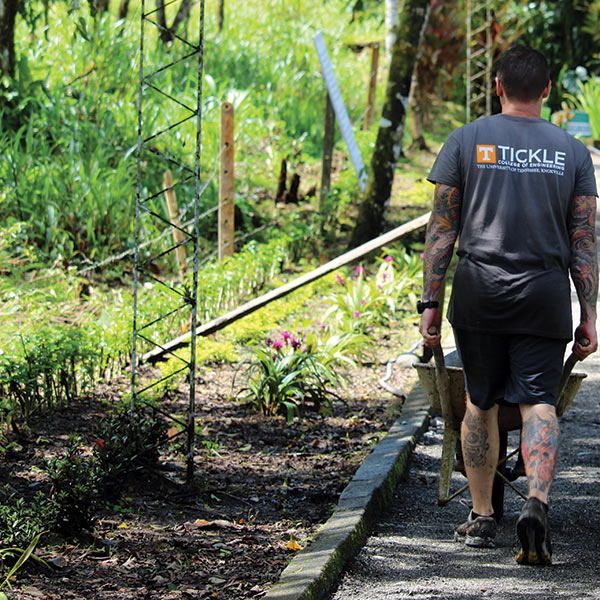
“I didn’t specifically set out to do those things, but when they came up and I knew I could help I felt like I should. I enjoy being able to help ease the burden on other people if I can.”
—Alex Weber
Now the electrical engineering student is working to make a difference on land.
Weber grew up in Giles County, Tennessee, joining the Navy after high school. In 2005, while serving as an electrician’s mate aboard the nuclear carrier USS Ronald Reagan, Weber noticed a dive team doing repairs on a nearby ship.
“I’ve been in love with the water all my life and have been diving for most of it. Once I saw them at work I decided right there on the spot that I was going to be a Navy diver,” Weber said.
He’s now been to all seven continents with the Navy and describes the post-tsunami aftermath as one of the most vivid memories of his lifetime. Remnants of houses and roofs greeted his ship even while it was still far out to sea.
“We had a pretty grim task to do, recovering bodies, people that had been trapped in houses and vehicles and swept to sea,” Weber said. “Yet even with their families, friends, and possessions gone, the people of Japan went out of their way to make us feel welcome. We’re talking about people who had nothing left to give yet gave us all they could. Their gratitude was unreal.”
His service as a Navy diver also took him to the jungles of Vietnam to bring closure five decades in the making. Again, faced with the task of recovering human remains, Weber scoured rivers and mud that was “10 feet deep at times” to bring American soldiers and pilots back home.
“I got a handwritten letter from the relatives of a former soldier about helping do what I did in Vietnam,” Weber said. “That’s better than any medal or ribbon I could ever receive.”
From Sea to Tennessee
Weber eventually transitioned from serving in the field to educating future divers at National University Polytechnic Institute in San Diego.
Thinking about his own education, however, is what brought him back to his home state. He had an interest in electrical engineering and knew that UT had a strong program in the field.
While being closer to relatives in his home state was an advantage, the move came with its own set of challenges.
“It wasn’t easy to be back in a classroom for the first time in a decade, with vast life experience differences—not to mention age differences—than your classmates,” said Weber, who is now a senior. “Questions about where to go, what to do, how to rediscover your social and educational skills are things that plague all veterans. Having support for veterans is critical.”
In his spare time, Weber gives back by fostering and training PTSD support dogs for Smoky Mountain Service Dogs. The group helps returning military members cope with getting back into civilian life by placing them with a loving companion who is directly responsible for them.
“Veterans can have any number of stresses that, by their training, they keep hidden. PTSD dogs are a great way of helping alleviate that,” Weber said.
Weber also tutors others through the US Department of Education’s Veterans’ Pre-College program, which is designed to assist eligible students through benefits navigation, school selection, career advice and exploration, financial aid, and education skills.
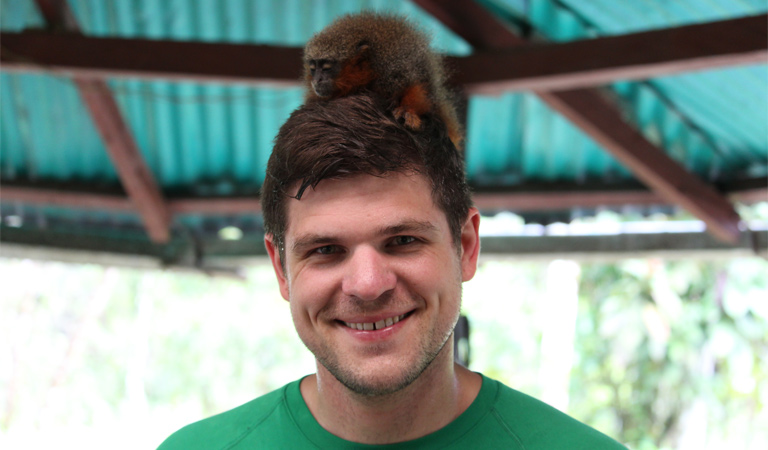
Into the Deep
Weber’s post-college plans merge the two loves of his life: diving and engineering.
Underwater rovers—made famous by Bob Ballard for their use in finding the wrecks of the cruise liner Titanic—continue to play an invaluable role in oceanographic research, from exploration and recovery to weather prediction.
Weber’s work toward a minor in entrepreneurship has also opened the possibility to him that he might one day start his own deep sea robotics company.
“I’d love to help continue that research, maybe work with the National Oceanographic and Atmospheric Administration in developing and deploying that kind of technology,” Weber said. “There are still a lot of things unknown about the ocean, and I think my background would help me make a difference in those efforts.”
While that goal might still be a few years away, one thing is certain: if it helps others, there’s no doubt he’ll achieve it.
